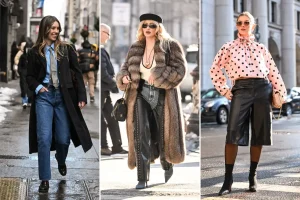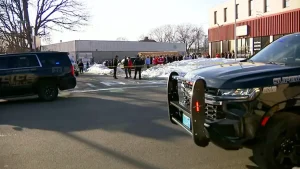Rep. Ritchie Torres, a New York Democrat, has openly criticized Mayor Eric Adams for his handling of an employee accused of antisemitic vandalism. Following a video that captured a staffer in Adams’ office tearing down posters of Israeli hostages, Torres took to social media declaring that individuals engaging in antisemitic acts should be fired rather than simply fined. He emphasized the need for a strong zero-tolerance policy towards antisemitism in both City and State governance, insisting that anyone committing such acts should not have a place in the administration. Responding to rising concerns about antisemitism and violence in New York, Torres’s comments underline a significant ideological divide within the Democratic Party regarding how to confront crime and intolerance.
Torres, known for his moderate stance and vocal opposition to the left wing of his party, rebuked the city administration over this incident. He referenced the ongoing threat posed by antisemitism, particularly in light of recent events related to the Hamas terror group, which has been responsible for heinous crimes against Israeli citizens. His comments come as the aftermath of an attack in which Hamas killed over 1,200 people, highlighting the urgency for clear anti-antisemitism measures. The Bronx lawmaker appears to be using this incident as a platform to galvanize support for more decisive actions against hate crimes, positioning himself as a leader who stands firmly with the Jewish community and strongly condemns practices that undermine safety and cohesion.
Following Torres’s statements, Adams’ office announced the suspension of the alleged employee without pay while an investigation is carried out. This immediate action, although taken after Torres’s public outcry, suggests the mayor’s reluctance to maintain a zero-tolerance policy until it is externally compelled. The city has maintained that its Office of Special Projects and Community Events is intended to unify different cultural communities but has faced scrutiny when incidents like these occur. The apparent conflict between promoting inclusive policies and tolerating employees engaging in antisemitism raises questions about the city’s commitment to combating hate.
Amidst these developments, Torres has reiterated the necessity of replacing ineffective leadership within the city’s criminal justice system, sparking a broader conversation about public safety reforms. He further criticized the recent release of violent offenders who pose a threat to community safety. His remarks about Ramon Rivera, a repeat offender implicated in a recent triple homicide, indicate frustration with systemic failures that have allowed individuals to be released early. By directly calling for accountability in governance, Torres aims to reframe the narrative around crime in New York, arguing for a more rigorous approach to both antisemitism and violent crime.
The tensions surrounding public safety, crime, and antisemitism are reflective of broader national conversations within the Democratic Party regarding criminal justice reforms. Torres’s criticisms extend beyond the local government, hinting at an agenda that may position him to challenge prominent figures like Governor Kathy Hochul in the future. Similarly, Mayor Adams has also shifted blame towards Albany, advocating for increased authority for police to manage mental health crises more effectively. This blame-shifting indicates a struggle to align party positions while ensuring adequate safety measures and addressing community concerns.
In conclusion, the dialogue surrounding antisemitism and public safety in New York is emblematic of deeper divisions within the Democratic Party. Torres’s outspoken demand for firings in response to antisemitic acts showcases a desire for accountability and decisive action against hate. His broader criticisms of leadership and the need for significant reforms present a challenge to incumbents, urging them to reconsider their approaches to governance, safety, and community impact. As these issues continue to unfold, they will likely play a substantial role in shaping the political landscape in New York City and potentially serve as a litmus test for Democratic unity amidst rising societal tensions.











